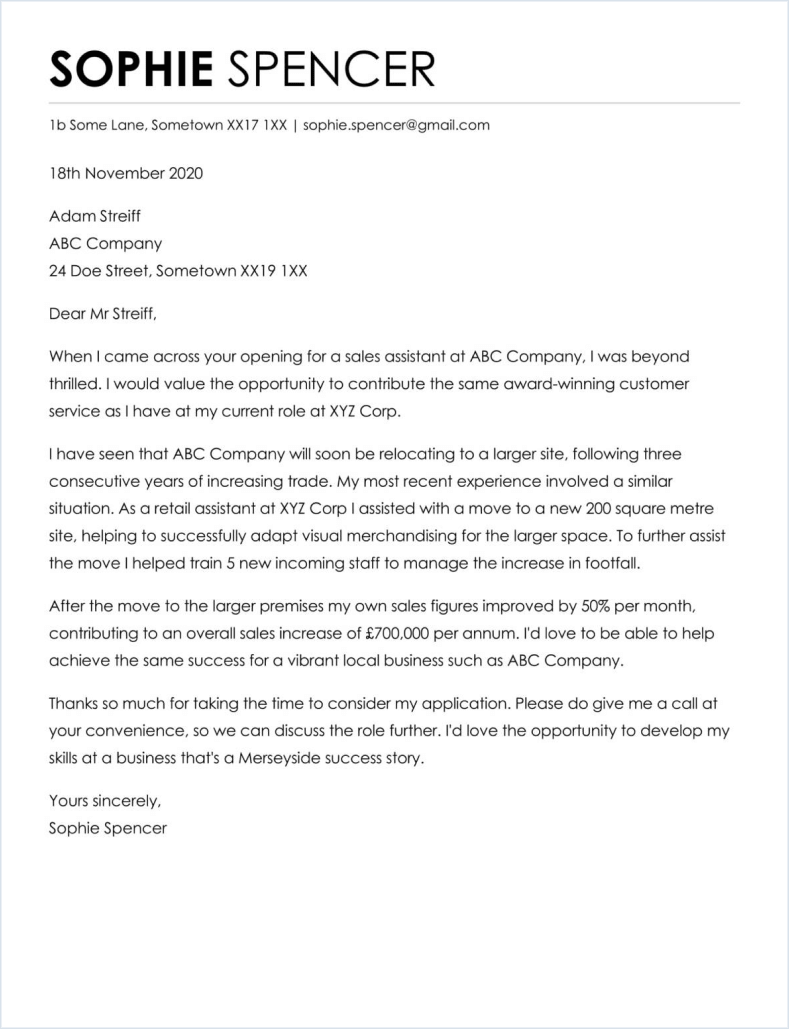

Don’t ever include your salary requirements unless otherwise directed by the potential employer.This could be seen as awful cover letter etiquette and indicate you’re not attentive to details. Don’t address the wrong company name or the wrong company contact’s name.The smallest typo can ruin your chances at the job. Avoid any spelling or grammar errors in your document.Just like your resume, keep your document to just one page to entice hiring managers instead of overwhelming them. Instead, introduce yourself in the letter with a relevant qualification and connect it to the position. Don’t start your cover letter with your name.For example, if you’re from out of town but planning to move close to the job location, or you’ve been at your current position for only a short time. If applicable, quickly explain any questions that your resume may raise.
#Cover letter examples to whom it may concern full#

Research the employer’s mission and history. Tailoring your voice shows the manager that you’ll fit in well at the company. If you’re applying for a finance position, a more serious tone will work better. If you’re applying to write for a blogging website, go for a friendly or informative tone like the site uses. Use a direct tone that matches the company’s atmosphere. Incorporating the exact skills, requirements, and wordings used in the job listing will make your letter stand out to your employer and show that you’re exactly what they’re looking for. Use language directly from the job listing. Take a look at their website and look up any outside articles about the work that they’re doing. The tone and content of your letter depend on the company you’re applying for, so it’s important to learn as much as you can about it. Research the company and tailor your letter accordingly. If you want your letter to be more formal, opt for a semi-colon instead. Ending the salutation with a comma is typically acceptable.

X Research sourceĮnd with a comma or semi-colon. If you can’t tell from their name what the manager’s gender is, address it to their full name. Make sure to use the hiring manager’s proper title, like Mr., Ms., or Dr. If you can't find the name of an employee, you can also address the team (for example, “Dear Digital Marketing Team“). Even if you’re incorrect, it’s better than using “Dear Hiring Manager” or “To whom it may concern”. Look up the company’s employee roster and make an educated guess as to who will be reading your cover letter. Go with another manager’s name if you can’t find the hiring manager. It makes your letter seem less formulaic, and shows the hiring manager that you care about this opportunity enough to figure out who to write to. This small detail makes a huge difference. Figure out the name of the hiring manager.


 0 kommentar(er)
0 kommentar(er)
